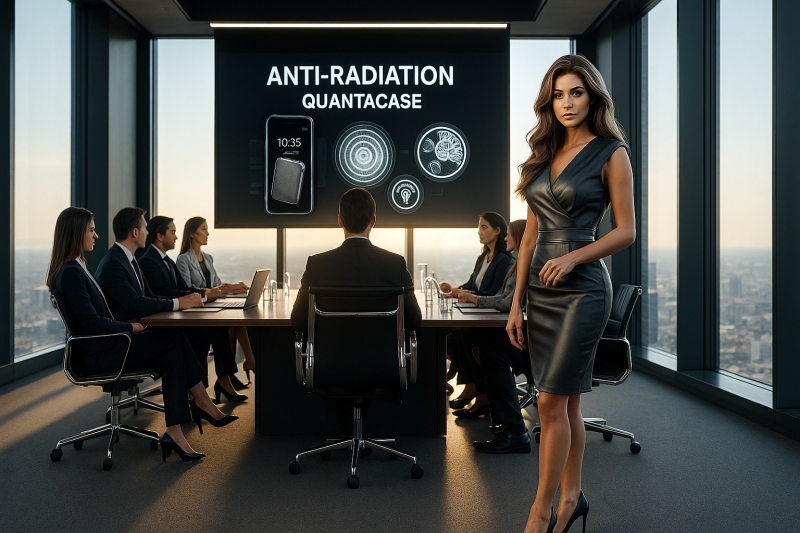Shockwaves Across the Scientific Community: Cellphone Radiation Risks Exposed
Recent developments have sent shockwaves through the scientific community and public consciousness regarding the potential health risks of cellphone radiation. In a groundbreaking move, France banned the sale of the iPhone 12 due to radiation concerns, igniting a Europe-wide debate on the safety of our everyday tech companions.
But the issue runs deeper in the United States. Experts like Devra Davis, a prominent cancer epidemiologist, have sounded the alarm, stating that current U.S. radiation tests are fundamentally flawed. “These tests are rigged,” Davis asserts, “They ignore the long-term exposure effects, which our research shows can be seriously harmful.”
Davis’s concerns are not unfounded. The notorious “Dieselgate” scandal, where Volkswagen manipulated emissions tests, draws an unsettling parallel to how cellphones are currently tested – not as they are used, but in artificial conditions that may mask their true impact on our health.
Alarming Studies: From Sperm Damage to Brain Cancer
What’s even more alarming are the findings of some major studies. The National Toxicology Program (NTP), in a multi-million-dollar study, found “clear evidence” of a link between cellphone radiation and cancer in rats. Similarly, the Ramazzini Institute (RI) in Italy corroborated these findings, observing the same type of tumors in their animal subjects.
Legal Battles and Outdated Standards
In a recent legal blow, the Federal Communications Commission (FCC) lost a critical court case challenging the adequacy of its radiation standards, set back in the 1990s. Critics have long argued that these standards are grossly outdated, failing to consider the latest scientific data and the real-world usage of mobile devices.
The Call for Change: Elect Officials Who Will Act
This brings us to a crucial point – the power of the electorate. The current situation underscores the urgent need for public awareness and action. It’s time to demand more from our elected officials, to push for a comprehensive reevaluation of radiation guidelines that reflect current scientific understanding and public health concerns.
Your Health, Your Choice
As cellphone usage becomes more ingrained in our daily lives, it’s imperative to stay informed and take action. This isn’t just about technology; it’s about our health and the wellbeing of future generations. The message is clear: we need to elect leaders willing to challenge the status quo and prioritize public health over industry interests.
In the wake of these revelations, it’s more important than ever to remain vigilant and proactive in understanding the potential risks associated with technologies we use every day. The real danger might just be lurking in your pocket.
FAQs on Cellphone Radiation and Health Risks
What is cellphone radiation?
Cellphone radiation refers to the electromagnetic fields emitted by mobile phones. This type of radiation is non-ionizing, meaning it doesn’t have enough energy to remove tightly bound electrons.
Why is there concern about cellphone radiation?
Concerns stem from studies suggesting that long-term exposure to cellphone radiation might be linked to certain health risks, including cancer, reproductive issues, and neurological disorders.
What did the National Toxicology Program (NTP) study find?
The NTP study found “clear evidence” of a link between high levels of cellphone radiation and the development of heart and brain tumors in rats.
What about the Ramazzini Institute (RI) study?
The RI study in Italy supported the NTP’s findings, observing similar types of tumors in rats exposed to cellphone radiation.
Has any government taken action based on these findings?
Yes, France banned the sale of the iPhone 12 over radiation concerns and has updated software on several models to reduce radiation emissions. This was fixed by a software update – one not available in the USA!
What are the current FCC standards for cellphone radiation?
The FCC’s current standards, set in the 1990s, focus on the thermal effects of radiation and are considered outdated by many experts in light of recent research findings.
Why was the FCC sued over its radiation standards?
The FCC was sued for not updating its radiation safety standards despite emerging scientific evidence suggesting potential health risks from cellphone radiation.
Can cellphone radiation affect fertility?
Some studies suggest that cellphone radiation can impact fertility, potentially affecting sperm quality and testosterone levels.
Is there a link between cellphone radiation and brain cancer?
While some studies, including a 2009 review in the Journal of Clinical Oncology, suggest a possible link, more research is needed to fully understand this relationship.
How can I reduce my exposure to cellphone radiation?
To reduce exposure, use speaker mode or headphones for calls, avoid carrying your phone close to your body, limit the use of cell phones by children, and try to use your phone when the signal is strong, as lower signals can increase radiation output.